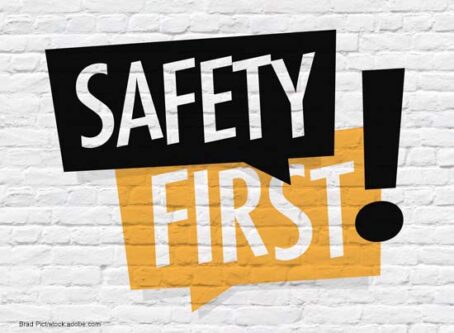Autonomous trucks are a trending topic at statehouses
The use of autonomous trucks on public roadways is a topic at statehouses from California to Kentucky.
Truck platooning technology advocates insist it saves fuel due to reduced aerodynamic drag, lessens traffic congestion and improves highway safety.
Critics, including motorcyclists, question how automated vehicles and traditional vehicles will interact on roadways. Others doubt whether widespread use of the technology is realistic.
The Owner-Operator Independent Drivers Association recognizes that the rapid development of autonomous technology has potential. However, OOIDA has pointed out the technology poses challenges as it relates to commercial vehicles and highway safety.
California
A California Assembly panel is scheduled to consider a bill next week to rein in the use of autonomous trucks. The issue is not new to the Golden State.
In 2023, state lawmakers sent to Gov. Gavin Newsom a bill to prohibit autonomous vehicle operation with a gross vehicle weight of at least 10,001 pounds for testing purposes, transporting goods or transporting passengers without a “human safety operator physically present” in the vehicle during operation.
Newsom rejected the revision. He said it was “unnecessary” for the regulation and oversight of heavy-duty autonomous vehicle technology in the state. In his veto message, the governor referred to a 2012 state law that provides the DMV with authority to regulate the testing and deployment of autonomous vehicles on state roadways.
As incidents in the state involving autonomous vehicles have continued to get headlines, Assemblymember Cecilia Aguiar-Curry, D-Winters, brought the issue back to the statehouse.
“The autonomous trucking industry has cast this bill as a ban on technology when it explicitly states that testing and deployment will happen with a human safety operator,” Aguiar-Curry said in recent remarks. “Using their logic, they’re the ones who support a ban. A ban on humans in trucks.”
This year’s bill, AB2286, is identical to last year’s version. The Assembly Transportation Committee is scheduled to discuss the bill during a Monday, April 15 hearing.
Kentucky
Legislative pursuit in Kentucky to amend the state’s requirement for truck platooning has again been derailed by the governor.
State law authorizes truck platooning. A human driver is required to be behind the wheel of a trailing platoon vehicle.
For the second year in a row, Gov. Andy Beshear has vetoed legislation to authorize only the lead vehicle in a platoon to have a human driver behind the wheel. A requirement was included that a trailing vehicle be fully engaged.
Beshear cited safety concerns for his action. In his veto message, the governor said, “opening Kentucky’s highways and roads to fully autonomous vehicles should occur only after careful study and consideration and an extensive testing period with a licensed human being behind the wheel, which is what other states have done before passing such laws.”
A provision new to the bill this year called for requiring a human driver to be present in an automated truck exceeding 62,000 pounds. The requirement would be in place for the first two years.
The Teamsters described the legislation as “dangerous.”
“This bill and others like it are written by and for big tech, and Gov. Beshear made the right call by vetoing it,” Teamsters Fred Zuckerman stated.
The Legislature could decide to pursue a veto override. A simple majority in each chamber is required to override a veto.
As HB7 made its way through the statehouse, House lawmakers approved it on a 61-31 vote. Senate lawmakers followed suit by a 20-18 margin.
Looks like we pissed off the robotics club. But polling shows the public is with the “horse & buggy” union on this – maybe they saw the dangerous AV shitshow in San Fran🤷🏿♂️
Sounds like AI tech bros have a lot more work to do when ur done snarking in the twitter echo chamber
— Teamsters (@Teamsters) April 10, 2024
South Dakota
South Dakota Gov. Kristi Noem recently signed into law a bill touted to boost intrastate freight.
Previously HB1095, the new law establishes a regulatory framework to allow automated vehicles that include commercial vehicles to operate on state roads without a human operator behind the wheel. Municipalities are prohibited from passing laws to govern affected vehicles.
Specific to large trucks, fully autonomous commercial vehicles are expected to follow state laws governing operation, except that “any provision that reasonably applies only to a human driver does not apply to a vehicle operating with the automated driving system engaged.” LL









